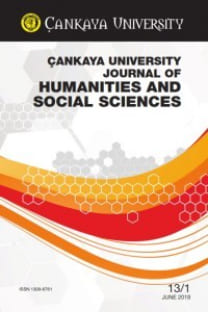Arab Sources on the Life of Galen
This paper contains a summary of the chapter on Galen’s life provided by Ibn Abi Usaybi’a. The Galen section shows the impressive range of the material on which a medieval Syrian physician, historian and bibliophile, could draw. Where the versions and fragments of information available to him are otherwise lost, the details he provides are of particular importance. At the same time it is clear that in the East the biography of Galen underwent some curious transformations, just as a large number of spurious works were in circulation. This paper also looks at little-known references to Galen which show his significance for medieval writers.
Anahtar Kelimeler:
Ibn Abi Usaybi’a, Galen’s life, Greco-Arabic literature
Arab Sources on the Life of Galen
Keywords:
-,
___
- ) It is possible to visit the ruins of these buildings, called the Asklepeieon, a few kilometers to the west of Bergama town centre. A vivid impression of life there is given in the works of the orator Aelius Aristides (died ad 181), who was obsessed by health and spent many years at the temple of Asklepios.
- ) Ibn Abi Usaybi’a (IAU), ‘Uyun al-anba’ fi tabaqat al-atibba’, edited by Nizar Riza, Dar Maktabat al-Hayat, Beirut, 1965. There was an earlier printed edition (Königsberg, 1884), to which the editor August Müller had to publish extensive corrections. IAU was able to draw on, among other works, Ibn an-Nadim’s Fihrist and the al-Qifti Ta’rih al-hukama (still available in Zawzani’s version).
- ) Franz Rosenthal, “Ishaq b. Hunayn’s Ta’rih al-atibba’,” Oriens, vol. 7, 1954, p. 55-71.
- ) One might ask why a legend bringing Christ and Galen together should have arisen. The reason is probably that it allowed a convenient contrast between divine and medical healing, with a lesson regarding the superiority of the former.
- ) Fritz Zimmermann, “The Chronology of Ishaq ibn Hunayn’s Tar’ih Al-Atibba’,” Arabica, vol. 21, no. 3, 1974, p. 324-330.
- ) Vivian Nutton, “Galen ad multos annos,” Dynamis, vol. 15, 1995, p. 25-39.
- ) Richard Walzer, Galen on Jews and Christians, London, Oxford University Press, 1949.
- ) Dimitri Gutas, Greek Thought, Arabic Culture. The Graeco-Arabic Translation Movement in Baghdad and Early ‘Abbasid Society (2nd–4th/8th–10th centuries), Routledge, London and New York, 1998.
- ) Fuat Sezgin, Geschichte des arabischen Schrifttums, vol. 3, Leiden, Brill, 1970, p. 147-148.
- ) Paul Sbath (ed.), Vingt traités, Cairo, Friedrich and Co., 1929, p. 19-52.
- ) Augustin Périer (ed.), Petits traités apologétiques de Yahja ben ‘Adi, Paris, 1920.
- ) Galen, On Medical Experience, Richard Walzer (ed. and translator), London, Oxford University Press, 1944.
- ) Abu Hayyan at-Tawhidi, Al-Muqabasat, Muhammad Tawfiq Husayn (ed.), Baghdad, Matba’at al-Irshad, 1970.
- ) Georges Vajda, “Galien–Gamaliel,” in Mélanges Isidore Uvy, Annuaire de l’Institut de Philologie et d’Histoire Orientales et Slaves, vol. 13, p. 641-652.
- ) Max Meyerhof, “Autobiographische Bruchstücke Galens aus arabischen Quellen,” Sudhoffs Archiv für Geschichte der Medizin, vol. 22, 1929, p. 72-86.
- ) Gotthelf Bergsträsser, “Hunain ibn Ishaq über die syrischen und arabischen Galen-Übersetzungen,” Abhandlungen für die Kunde des Morganlandes, vol. 17.2, Leipzig, 1925; and Gotthelf Bergsträsser, “Neue Materialen zu Hunain ibn Ishaqs Galen-Bibliographie,” Abhandlungen für die Kunde des Morganlandes
- ISSN: 1309-6761
- Yayın Aralığı: Yılda 2 Sayı
- Başlangıç: 2004
- Yayıncı: Çankaya Üniversitesi
Sayıdaki Diğer Makaleler
British National Identity, Topicality and Tradition in the Poetry of Simon Armitage
On a Boundary Value Problem For a Second Order ODE
Charlie Chaplin’s Screen Persona: “The Tramp” as Icon1
Arab Sources on the Life of Galen
A Note on the Chain Rule on Time Scales
Motivational Characteristics of Foreign Language Teachers
Arif Sarıçoban, Güven MENGÜ, Güven MENGÜ
Calculation of Signal Sources Coordinates In 2D And 3D Space
Salvation Through Beauty: Iris Murdoch’s New Religion in a Godless Universe
Quest for the lost M/Other: Medea Re-Constructed in Marina Carr’s By The Bog Of Cats... (1998)
